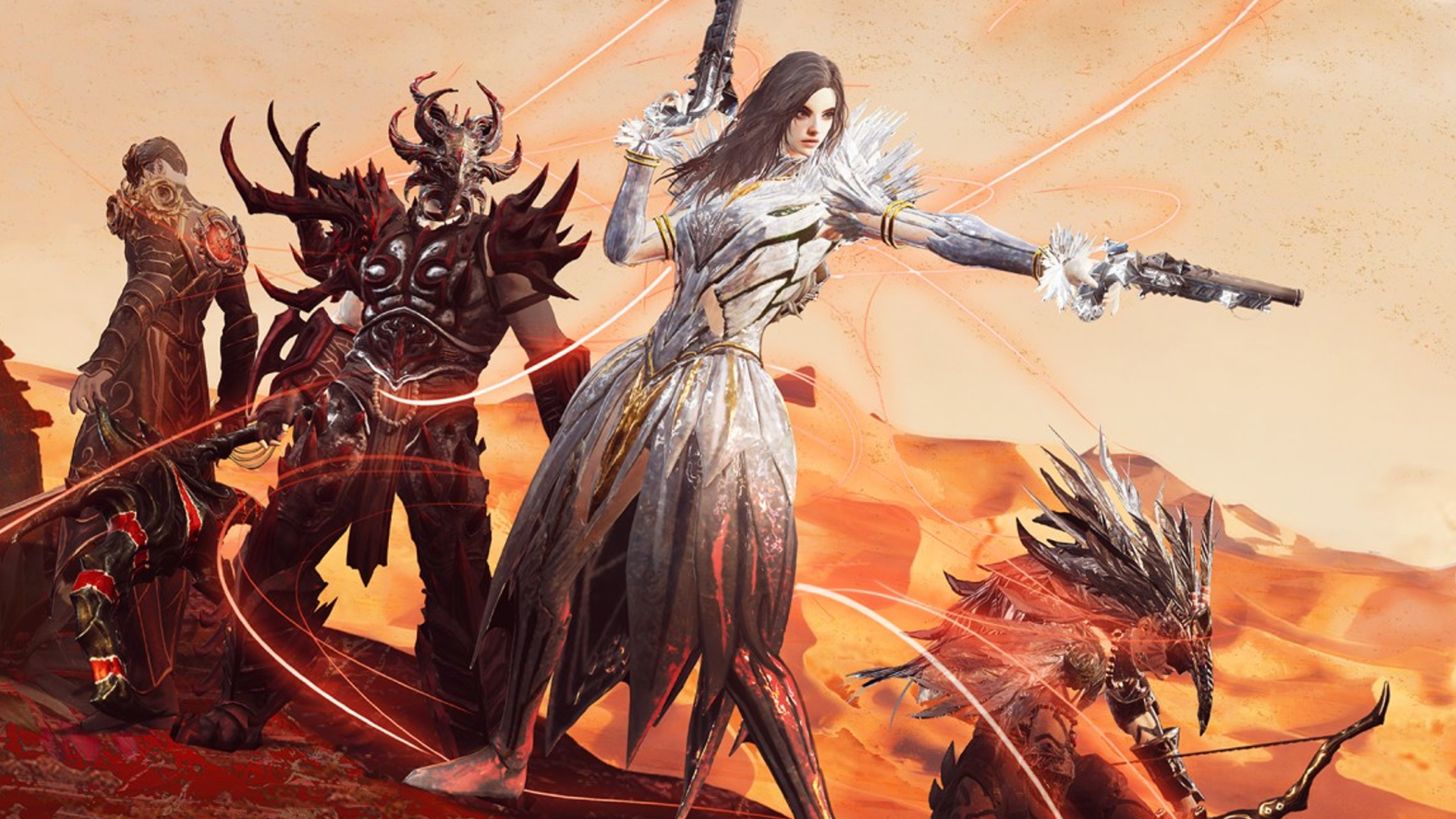'We're not very happy'—Platinum CEO apologises for Babylon's Fall, hints at troubled development
Acknowledges it may have caused "some disappointment, perhaps maybe even anger, to our dedicated fans and players".

September saw the unsurprising news that Babylon's Fall, a live service game developed by Platinum Games and published by Square Enix, was to be shuttered after less than a year. The game is no longer available for sale, and has stopped sales of premium currency, though the servers remain live until February 27, 2023.
The game was, and I say this with the sadness of a Platinum devotee, a disaster. It launched to a barrage of criticism over its looks and minor re-use of assets from other Square Enix games, but the problems were more than cosmetic: the game didn't feel good in the hands and, for a live service game especially, there just wasn't much content. "There isn't even enough not to like," our reviewer noted on the way to awarding it a 45. "There's just not enough full stop."
It's been another misfire for Platinum Games and any fan of blistering action experiences must hope that the studio can get back to the glory days. The studio's CEO Atsushi Inaba, a developer of the highest pedigree with an incredible track record, knows things didn't go well with this one. Due to the nature of the deal between Platinum and Square Enix, however, he can only say so much.
"The only thing we can comment on here in terms of the closure of the Babylon’s Fall service itself, is that this unfortunate conclusion might have been something that had triggered some disappointment, perhaps maybe even anger, to our dedicated fans and players," says Inaba in a new interview with VGC.
"And any disappointment that we might have caused for our fan base is something we feel extremely sorry about, the fact that we led our dedicated fans to feel that way as a developer. Providing any sentiment other than enjoyment and fun in our creations to players is something that we’re not very happy about at all as a developer."
Inaba goes on to say that the studio is still planning to make live service games and, in his explanation of what matters about such products, one can read between the lines to get a sense of what he thinks went wrong here.
"The first is just the sheer fun of the core game mechanics that you have in the live service game and secondly, performing the live service itself," says Inaba. "I think these two pillars are values that need to be strongly connected internally, and need to be viewed, treasured, and valued by the same people, on the same team, at the very same company.
Keep up to date with the most important stories and the best deals, as picked by the PC Gamer team.
"Otherwise, if one of these is valued over the other or if they’re not connected, things usually don’t turn out the way we would have wanted them to."
So: the core loop wasn't fun, and there may have been some disconnect between what Platinum was trying to do and what the live service elements of the game were set up to achieve. Inaba doesn't discuss monetisation but it seems clear he feels that there is failure on both Platinum's side and that of the publisher: "If we hypothetically were to do everything on our own to develop the game, with full control, then if we failed it’s pretty much 100% on us and if we succeed it was basically on us."
"But I think this whole 'frustration' story is something that we should not deny," concludes Inaba, "but rather admit the fact and make this end result clear, move on, and connect this experience to our efforts moving forward. This is the only way to not feel frustrated in the long run."
Two of Platinum's current projects are known. Bayonetta 3 carries the hopes of hack-and-slash fans everywhere, though that will be exclusive to Nintendo Switch. While the original Bayonetta is now on PC, the two sequels have been bankrolled and published by Nintendo so, sadly, don't expect a port anytime soon. The other game is Project G.G., which is said to be a continuation of the spirit of director Hideki Kamiya's Viewtiful Joe and The Wonderful 101, but nothing firm is known of it: and if this one's live service, I'll eat Joe's backwards baseball cap.
The fall of Babylon's Fall illustrates a wider industry trend, of companies looking at the big-hitters and rushing towards the live service without, perhaps, a full appreciation of the development resource and time that these games require to be even vaguely competitive. Making a game like Destiny 2 that can be played endlessly is, surprisingly enough, not easy. There's no doubting that Platinum is stacked with talent but, with this one, it definitely bit off more than it could chew.

Rich is a games journalist with 15 years' experience, beginning his career on Edge magazine before working for a wide range of outlets, including Ars Technica, Eurogamer, GamesRadar+, Gamespot, the Guardian, IGN, the New Statesman, Polygon, and Vice. He was the editor of Kotaku UK, the UK arm of Kotaku, for three years before joining PC Gamer. He is the author of a Brief History of Video Games, a full history of the medium, which the Midwest Book Review described as "[a] must-read for serious minded game historians and curious video game connoisseurs alike."

